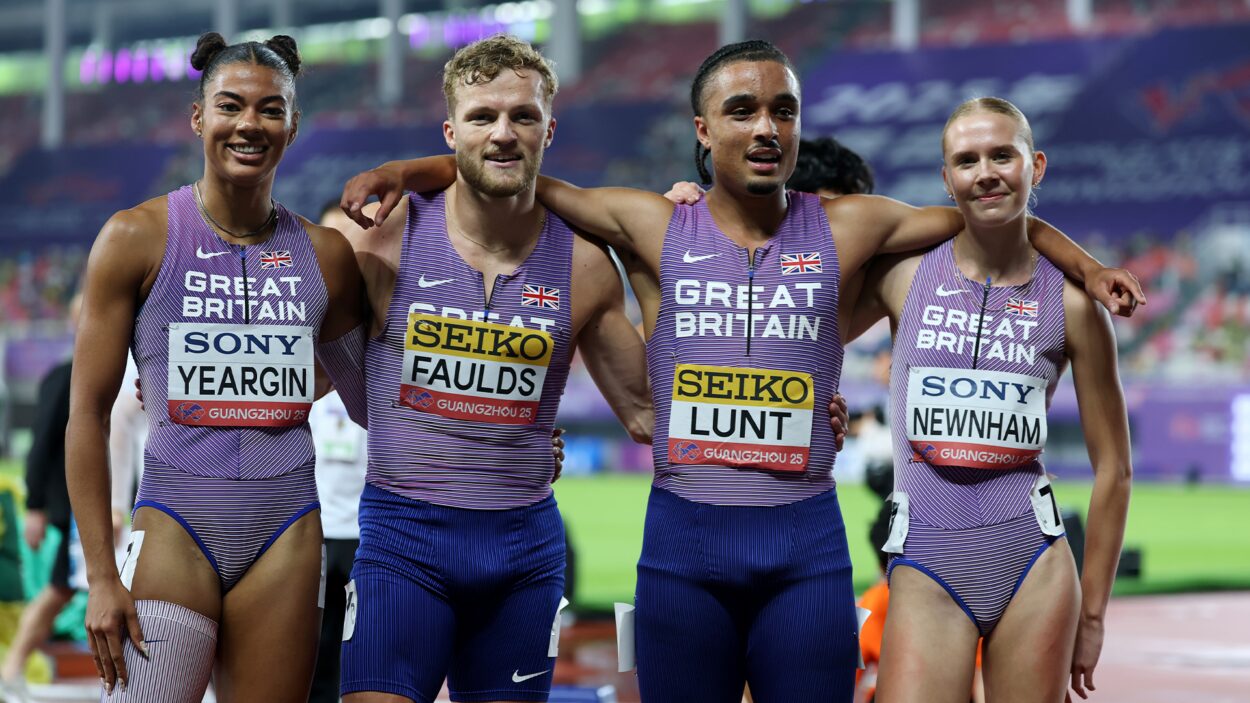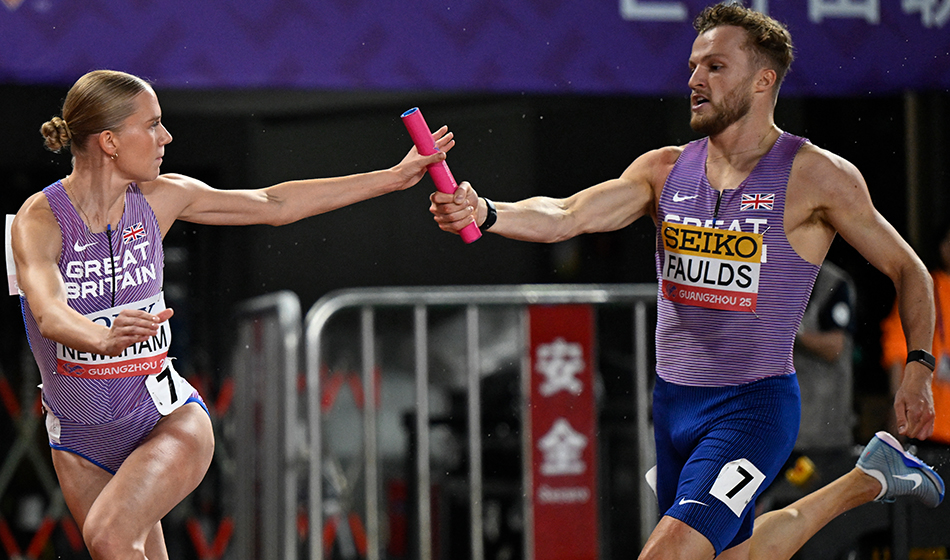Alastair Chalmers’ superlative run this past weekend was yet more evidence of Great Britain’s athletes excelling over the distance
Cast your mind back to last year’s UK Athletics Championships and the moment when Alastair Chalmers attempted to qualify for the Paris Olympics.
To guarantee selection for the Games, the British hurdler needed to run faster than the automatic qualification mark of 48.70, given he narrowly missed out with 48.76 at the European Championships.
However, things quickly unravelled in Manchester after Chalmers left his blocks before the starting gun. As was his right, the Guernsey athlete ran under protest and, with the mindset of proving all the doubters wrong, he stormed round the track in a championships record of 48.53. Crucially, it was also under the time needed to qualify for the Olympics.
Would the result stand though? Chalmers had claimed that the reason for such a quick reaction was because he heard noise in the crowd. Almost two hours after he finished the race, officials upheld his appeal and agreed with his argument.
Chalmers, with his very last opportunity, had qualified for the Games, later stating that it went from being “the worst day” of his life to “the best”.
With the automatic qualification standard for this year’s World Athletics Championships in Tokyo being 48.50 instead of 48.70, you might’ve thought that athletes would find it tougher to meet that mark. But, in the last few weeks, a myriad of Great Britain’s male British hurdlers have upped their game and taken things to the next level.
Chalmers has once again led the way. This past weekend, the 25-year-old recorded a personal best of 48.30 – following times of 49.13 and 48.61 this season – to win from lane two in Rehlingen, Germany. That means that the Guernsey athlete has, in early June, almost certainly booked his spot on the plane to the Japanese capital.
Not far behind Chalmers on the 2025 lists is Seamus Derbyshire, who decimated his personal best of 49.29 with 48.47 – also under the automatic world qualification mark – at the Josef Odlozil Memorial around a fortnight ago.
Then, at last month’s IFAM Outdoor Meet in Brussels, Josh Faulds, Jake Minshull, Alex Knibbs and Tyri Donovan all ran under 50 seconds, the former two going sub-49 over the distance.

Faulds won a highly competitive race in damp conditions, recording a time of 48.59 in the Belgian capital – a mark that is under the UKA consideration standard (48.70) for this year’s World Athletics Championships.
Minshull’s 48.88 means he is just short of that UKA mark, while Knibbs (49.08) and Donovan (49.45) also improved their bests by some margin.
Oliver Parker, at the age of 19, has also run 51.02, putting him third on the European under-20 list so far this season.
When figuring out why these times have improved so much, you don’t need to look far. In a recent Instagram post, Chalmers paid tribute to his coach Matt Elias, with the pair having worked with each other since 2020.
James Wright, who is based in Milton Keynes, coaches Faulds, Minshull and Parker. Derbyshire is under the guidance of both Nick Dakin and Alex O’Gorman, Knibbs is coached by Stewart Marshall and Donovan is under the stewardship of Marina Armstrong.
To put this strength in depth in context, this is the first ever season where four British male hurdlers have run under 49 seconds. Last year, three athletes (Chalmers, Knibbs and Okoro) achieved that feat. Discounting the previous two seasons, the last time even two hurdlers went sub-49 was back in 2014 (Niall Flannery and Rhys Williams).
In the women’s 400m hurdles Lina Nielsen, who went sixth on the UK all-time list with 54.43 at last summer’s European Championships, continues to lead the way. Emily Newnham has had an impressive season so far and, alongside her two relay medals from the European Indoor Championships, improved her personal best from 56.85 to 55.20 in Brussels.
Last month, Hayley McLean took almost a second off her best as well, taking down her mark of 56.56 to 55.48.

A lot of observers would likely say ‘it’s about time’. A distance synonymous with British success – the country boasts three Olympic and two world champions – the 400m hurdles has captured the imagination of fans and onlookers across many different generations.
David Burghley, who switched to politics after his athletics exploits – he served as a Conservative MP for Peterborough from 1931 until 1943 – became Olympic 400m hurdles champion at the Amsterdam 1928 Games.
At the Mexico 1968 Olympics, David Hemery produced a world record on his way to topping the podium, with his mark of 48.12 lasting until 1972 when John Akii-Bua ran 47.82 at the Munich Games.
And who can forget Sally Gunnell at Barcelona 1992? In dominant fashion, the Brit clocked 53.23, seeing off American duo Sandra Farmer-Patrick and Janeene Vickers to secure the gold medal in Spain.

A year later, Gunnell would go on to win the world title in Stuttgart, setting a world record of 52.74 in the process. Dai Greene, who secured the gold medal in Daegu 12 years ago, is Great Britain’s other world 400m hurdles champion.
Kriss Akabusi, at the age of 32 years and 272 days, is still the oldest male world 400m hurdles medallist – he claimed bronze at Tokyo 1991 – to this day. He backed that up with Olympic bronze in Barcelona a year later.
John Sherwood and Tasha Danvers also secured respective Olympic bronzes in the distance at the Mexico City 1968 and Beijing 2008 Games.
From the likes of Karsten Warholm to Sydney McLaughlin-Levrone, there is fierce international competition nowadays, so any British athlete will have their work cut out at the highest level of the sport.
However, it’s undeniable that there is clear progress in the 400m hurdles domestically and it will be fascinating to see how it unfolds, with both the men’s and women’s events at the UK Athletics Championships looking unmissable. Let’s hope it stays that way as well.










